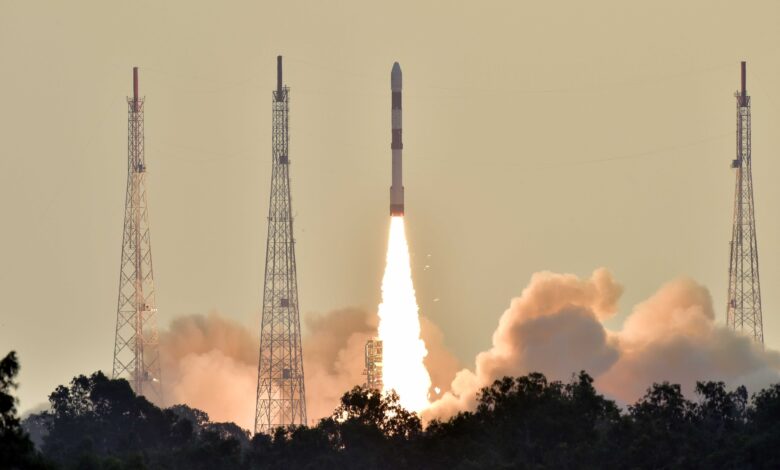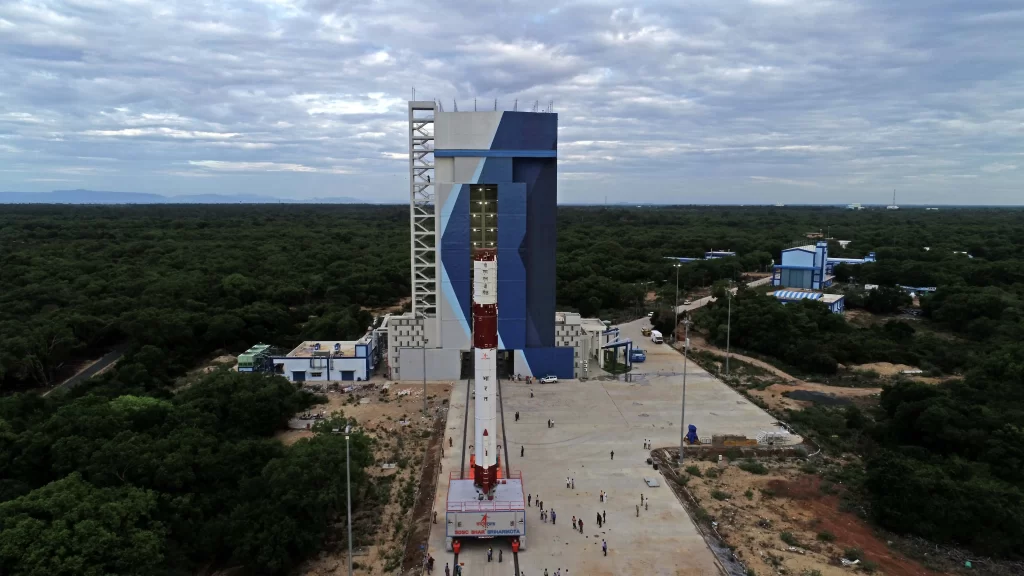PSLV-C56/DS-SAR Mission Accomplished Successfully! Seven Satellites Launched Precisely into Intended Orbits

Sriharikota, India – In a remarkable achievement, the PSLV-C56 mission carrying the DS-SAR satellite and six co-passengers was successfully launched from the first launch-pad of Satish Dhawan Space Centre (SDSC-SHAR) on July 30, 2023, at 06:30 hrs IST.
The PSLV-C56 vehicle, configured in its core-alone mode similar to C55, flawlessly delivered the DS-SAR satellite into a Near-equatorial Orbit (NEO) at an inclination of 5 degrees and an altitude of 535 km. Weighing 360 kg, the DS-SAR satellite is a joint initiative by DSTA, representing the Government of Singapore, and ST Engineering.
Upon deployment and activation, DS-SAR will cater to the satellite imagery needs of various government agencies within Singapore. ST Engineering will leverage its capabilities to provide multi-modal and highly responsive imagery and geospatial services to commercial customers.
DS-SAR is equipped with a state-of-the-art Synthetic Aperture Radar (SAR) payload developed by Israel Aerospace Industries (IAI). This sophisticated technology enables DS-SAR to provide high-resolution imaging at 1m, offering comprehensive all-weather, day and night coverage.
The six co-passenger satellites accompanying DS-SAR on this historic mission are as follows:
- VELOX-AM: A 23 kg technology demonstration microsatellite.
- ARCADE: An experimental satellite focused on Atmospheric Coupling and Dynamics Exploration.
- SCOOB-II: A 3U nanosatellite carrying a technology demonstrator payload.
- NuLIoN by NuSpace: An advanced 3U nanosatellite facilitating seamless IoT connectivity in urban and remote locations.
- Galassia-2: A 3U nanosatellite operating in low earth orbit.
- ORB-12 STRIDER: An international collaboration that led to the development of this satellite.
The success of the PSLV-C56/DS-SAR Mission marks a significant milestone for India’s space program and reinforces its position as a leading player in the global space exploration arena. The precise placement of all seven satellites into their designated orbits demonstrates the Indian Space Research Organisation’s (ISRO) expertise and unwavering commitment to space exploration and technological advancement.





